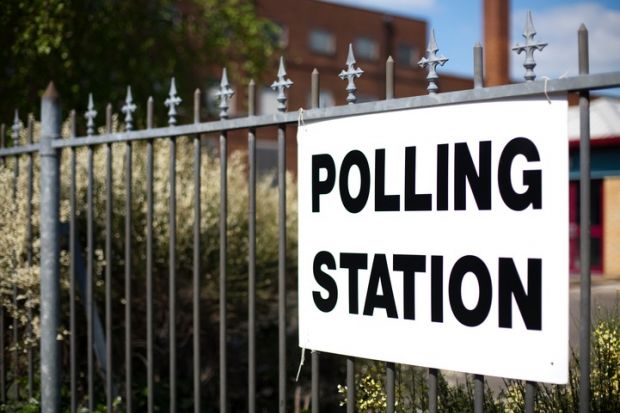The media love a good example of a threat to freedom of speech. Since the start of the academic year, influential figures have published dire warnings about the death of free and open debate on campuses on both sides of the Atlantic. Just last week, Times Higher Education carried two opinion pieces relating to an event at Middlebury College, in Vermont, at which the conservative psychologist Charles Murray was shouted down by students.
In the UK, the debate has heated up to the extent that Jo Johnson, the minister for universities and science, has alerted universities to his plans to reinforce their statutory duty to protect freedom of speech, requiring them to include a commitment to it in their governance documents.
When I was minister for higher education in the last Labour government, I also spoke out against the “no-platform” movement. I argued that as long as no violence is being advocated, the best way to combat extremism is through rigorous and open debate. And I remain infuriated when I hear reports of student groups who prefer to ban a speaker or disrupt an event than to engage with their political foes.
Work in a UK university? Please take part in our 2017 general election survey
Five years ago, amid widespread fears about the potential for students to be radicalised and drawn into terrorism, the big debate was whether universities were doing enough to set clear limits to the forms of speech and the speakers that we would allow on our campuses. That the pendulum of public opinion has swung the other way is encouraging. Setting these limits involves a delicate balancing act, but our policies are developed with care precisely because we have both a public duty and a natural sectoral inclination to support freedom of speech – which underpins our collective ability to engage in healthy, informed democratic debate and to hold our elected representatives to account.
All of that said, if you were to read a university policy on freedom of speech today, you might be forgiven for thinking that we are not putting our convictions into practice thoroughly enough. The presumption of freedom of speech as a default can lead to a certain complacency about how we are taking action to promote it. And the fact is that a principled statement supporting it, however impassioned, is no substitute for educating our students to be informed, active and critical citizens.
Johnson’s letter acknowledges that universities can point to a lot of good practice in this area. But we need to get better at publicising how we contribute to the public conversation and foster open debate, not merely within our staff and student communities but across our regions through our public engagement events. A good example is last year’s University of Bedfordshire-hosted debate on the Brexit referendum, which was broadcast live on local BBC radio.
Our freedom of speech is wasted unless we know how to use it to drive change. Voting, for instance, is an expression of freedom of speech, and it shouldn’t take a House of Lords amendment to the Higher Education and Research Bill to ensure that we are doing our duty in promoting and facilitating student voter registration ahead of next month’s general election.
When we work with our students to engage them in the community as volunteers, we should not neglect to teach them about the roles of the media, business and local, regional and national government in shaping the issues that concern them. The current generation does not see voting as a duty. It is up to us to show our students how their civic engagement has the potential to make a difference.
Above all, we need to work with our students to create a campus environment that is powered by lively debate and that encourages everyone to find their voice. The pursuit of controversy for its own sake is juvenile and foolish, but avoiding the debate for fear of controversy is worse.
Bill Rammell is vice-chancellor of the University of Bedfordshire. He was minister for higher education in the Labour government from 2005 to 2008.
后记
Print headline: Help get the vote out




